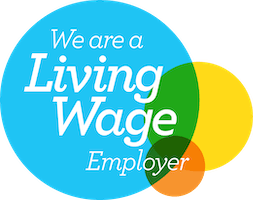The more we break the stigma that is attached to perimenopause, the easier it will be for us all to understand – Guest blog
by Louise-Jane Andrews
Most people have heard of the menopause, when periods stop due to age-related lower hormone levels – but this doesn’t happen overnight. The natural transition into menopause is known as ‘perimenopause’, and it often takes people by surprise.
These times of change can trigger or exacerbate anxiety, and here, member Louise-Jane Andrews shares her own experiences to help other women feel less alone.
There l was three short years ago, in the middle of perimenopause and l had never even heard of it.
l knew about the menopause, but perimenopause? lt was all news to me. l was 44 years old, and l couldn’t remember my own name.
My thoughts were permanently jumbled, and my short-term memory was non-existent. l was forgetting what l was doing mid-task and l would lose the thread of a conversation midway.
lt was a very scary feeling and l didn’t recognise myself anymore. l was either bawling at the top of my lungs or crying; there was no happy medium. l didn’t know who l was and it was a very isolating and worrying time.
l had convinced myself that something terrible was wrong with me and l could not continue like this any longer. So armed with a notepad full of my symptoms, l went to my doctor, and she immediately put my mind at ease and told me that l was going through the perimenopause.
l felt both relieved and worried. What was perimenopause? And what did it mean for me?
The doctor advised me about medication and vitamins that could help with my long list of symptoms that l was experiencing.
She explained that l had a hormone imbalance that was causing a lot of my issues, and l expressed my concern that l couldn’t sleep. l was literally exhausted all of the time.
But no matter how tired I was, my mind was constantly racing, and l felt as if my eyes were pinned open 24/7. This was causing me distress, and during the day l was unable to go about daily tasks.
The doctor explained to me that insomnia was also a symptom of perimenopause and l left that day with a mixed bag of feelings. l knew what was wrong with me, but at the same time, l had a long journey ahead full of ups and downs and the unexpected.
At least l knew what l was dealing with now. This helped somewhat in reducing my anxiety and l felt more in control. Now l could focus on getting better.
l began taking the vitamins which helped with my memory. The brain fog started to ease, and l could focus on things and concentrate again.
We were going through COVID-19 at this time and lockdowns were frequent, so it was a really stressful, isolating time. With this on top, it was all l could do to get through the day.
Following the diet sheet helped to control my hormone imbalance. l had been craving popcorn and ice chips of all things, and these cravings overtook my thoughts. l always had to have popcorn and raw broccoli in the house, and this, combined with night terrors and hot flushes, made it a very difficult time for me. I just could not cope with it all.
But the new diet and vitamins started to take effect and l began to feel more human again. In a few short months the cravings started to subside, and l started to feel happier again.
However, just as l thought l had turned a corner, then came the baths of blood. I remembered the doctor had said to expect the unexpected; well, this was unexpected!
l suffered 12 consecutive weeks of non-stop bleeding, enough to fill up a bath every day. l was exhausted and felt disgusting.
Eventually the bleeding subsided but l was left with serious anaemia and fatigue, on top of being sleep-deprived. l was at my wits end and it was all l could manage to walk around the house.
Fast forward to today and I have got my iron levels and other symptoms under control.
l have to take it day by day and l understand now that there are a lot symptoms and each week seems to bring a new one.
l read a lot. Knowledge really is power. The more we read and understand the easier it is to cope with. There is a myriad of books and information out there.
l still haven’t fully recovered from the trauma of it all and that perhaps has been the hardest part to deal with.
The anxiety l feel is something that l have to live with for now. I manage my expectations and l find exercise and a healthy lifestyle certainly help.
Perimenopause has a beginning a middle and an end. Few of us are textbook cases so it can be quite tricky to know which stage you are in, so it is important to talk to a doctor.
Remember that it is a natural part of life, one that all women will go through at some stage of their lives.
The more we break the stigma that is attached to perimenopause, the easier it will be for us all to understand. The more we talk about and share our experiences, the more we can learn from them.
There is light at the end of the tunnel, so keep that in your thoughts in difficult times. In the words of Abraham Lincoln, ‘This Too Shall Pass’.
Recommended resources:
FREE FACTSHEET
Our free factsheet provides an overview of specific menopause and anxiety conditions and suggestions for evidence-based treatments.
Download it now at www.bit.ly/menopause_anxiety
The views expressed by the contributor are not necessarily those of Anxiety UK, nor can we guarantee the accuracy of the information provided. If you would like to write a blog for AUK please email [email protected] for more information.






